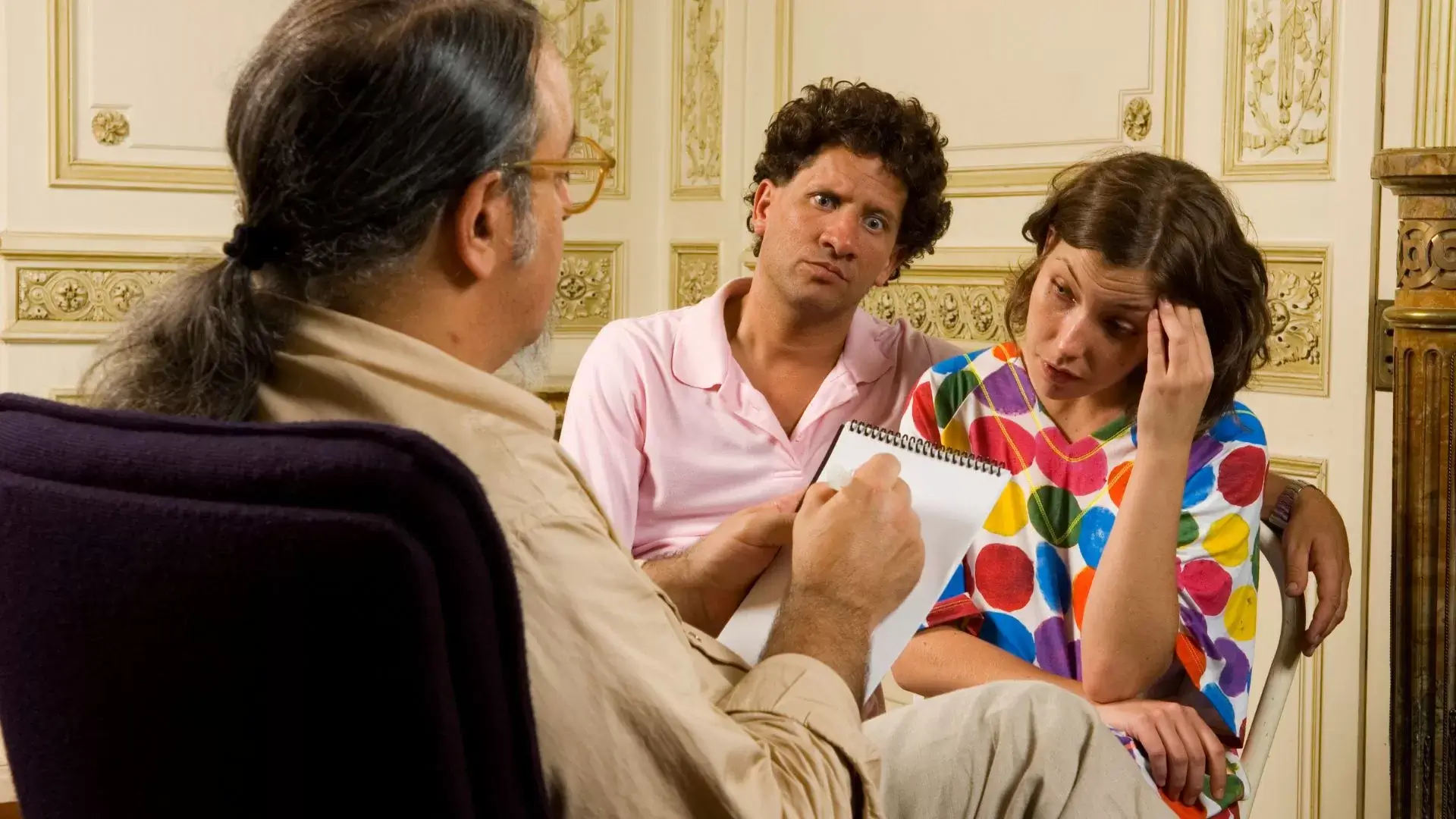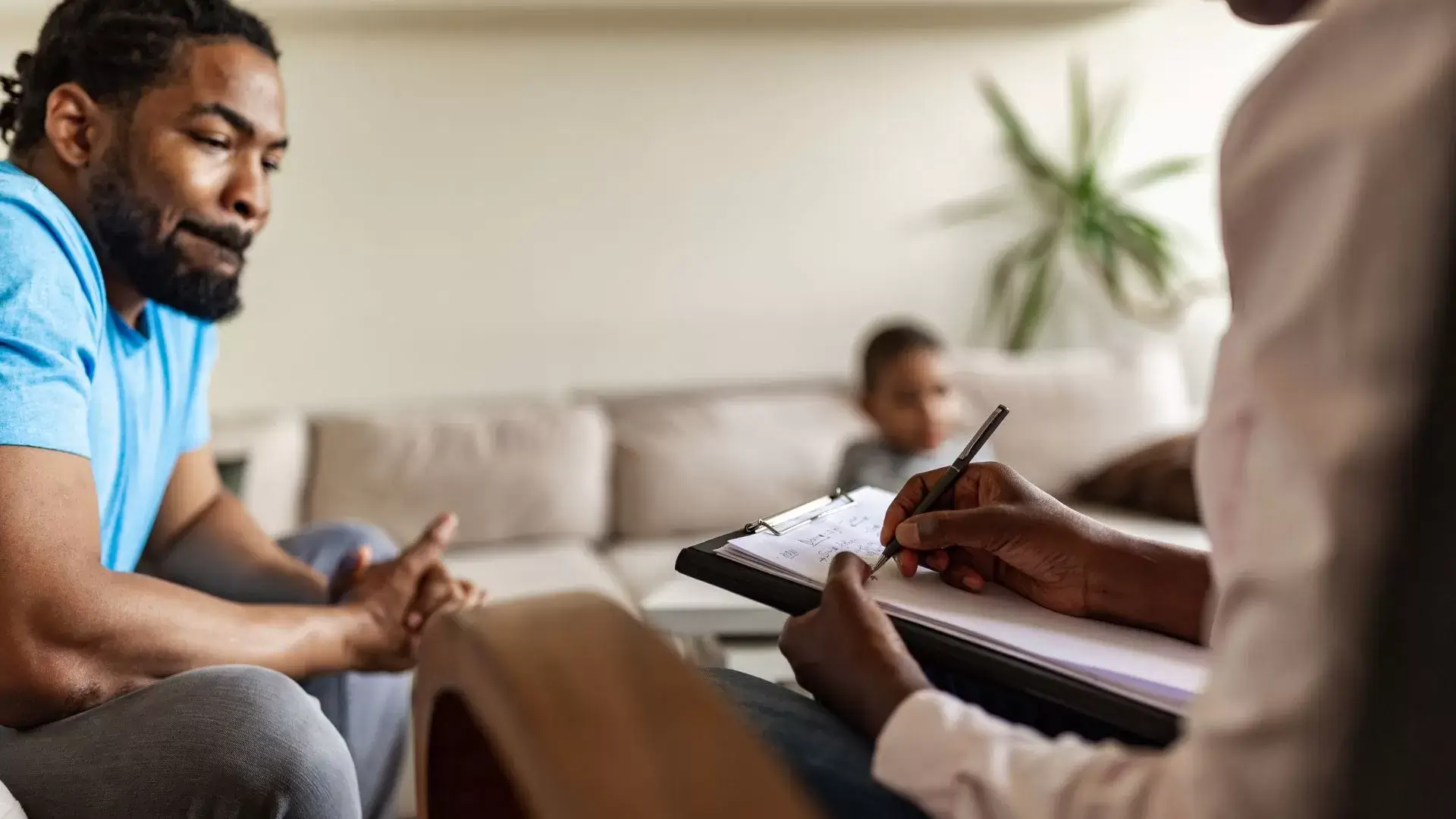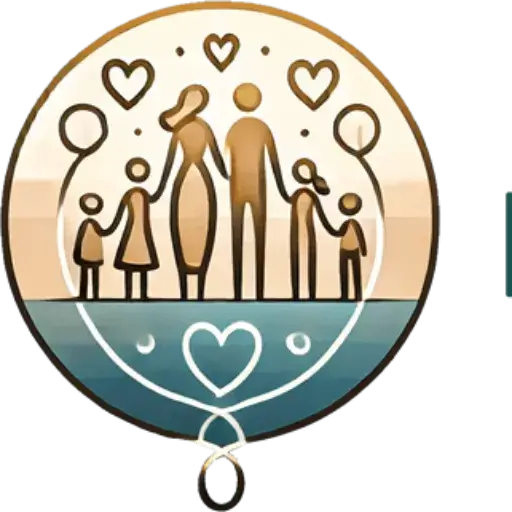Family Counseling Therapy for Addiction
Family Counseling Therapy for addiction offers us a compassionate space to explore the impacts of addiction on our loved ones. It engages the entire family, promoting open communication and emotional support through shared experiences. As we navigate this journey together, skilled therapists guide us, helping to strengthen our relationships and address underlying issues. With a focus on healing and understanding, we can develop effective coping strategies and foster resilience within our family unit. We’re not alone in this, and there’s more to uncover about how we can support each other through recovery.

About Family Counselling Therapy
Family counseling therapy offers us a compassionate space to explore the dynamics of addiction and how it impacts our loved ones, fostering understanding and healing together. Through family counseling services, we can engage in addiction therapy that addresses not just the individual struggling with addiction, but the entire family unit. This holistic family therapy approach enhances our emotional support in families, encouraging open communication and empathy.
As we navigate our challenges, we learn valuable conflict resolution in families, equipping us with tools to handle disagreements constructively. Behavioral therapy techniques can help us recognize and alter negative patterns that contribute to the cycle of addiction. In sessions, we often find that parent-child therapy strengthens relationships, allowing us to reconnect and establish trust.
Additionally, the therapeutic interventions we experience can create a safe environment for sharing our feelings, which is essential in addiction recovery support. Understanding each family member’s perspective helps us build resilience and fosters a collective commitment to healing. Ultimately, this journey deepens our connection, creating a supportive network that empowers both the individual facing addiction and the family as a whole.
The Role of Family Therapists in Addiction Recovery
In our journey toward recovery, compassionate family therapists play an essential role in guiding us through the complexities of addiction, helping each member find their voice and foster understanding. A skilled family therapist understands the dynamics at play and creates a safe space for open dialogue. Through family therapy, we can address underlying issues, strengthen our bonds, and promote healing.
Addiction counseling services often include family-focused therapy, where we learn effective communication skills that can transform our relationships. In couples therapy, partners can explore their feelings and gain insights into how addiction affects their connection. Crisis intervention therapy offers immediate support during challenging times, reinforcing the importance of unity and resilience.
Family support programs help us understand that recovery isn’t just an individual journey; it’s a family affair. These programs empower us, providing tools and strategies to navigate the ups and downs together. By engaging in this process, we’re not only fostering family healing but also building a foundation for lasting change. With the guidance of a dedicated family therapist, we can work toward a healthier future, where love and support are at the forefront of our recovery journey.

Cognitive-Behavioral Therapy (CBT) for Addiction in Families
Cognitive-Behavioral Therapy (CBT) offers us powerful tools to understand and change the thought patterns that contribute to addiction within our families. By working with a cognitive-behavioral therapist, we can explore how negative thoughts and behaviors related to substance abuse not only affect the individual but also ripple through our family dynamics. This therapy for addiction encourages us to recognize triggers and develop effective coping strategies.
Through family therapy techniques, we can improve our communication and support each other in the journey of addiction management. CBT equips us with practical skills for relapse prevention, helping us identify warning signs and develop a proactive approach to maintaining sobriety. As we engage in addiction recovery programs, we learn to cultivate emotional resilience, fostering a healthier environment for all family members.
Family Systems Therapy for Addiction Support
Many of us find that understanding the intricate dynamics within our families can be an essential step in supporting a loved one struggling with addiction. Family systems therapy provides a framework to explore these relationship dynamics, helping us recognize how our behaviors and emotions impact one another. Through family therapy sessions, we can engage in meaningful conversations, fostering a supportive environment focused on healing.
By incorporating trauma-informed therapy, we become more aware of the underlying issues that may contribute to our loved one’s addiction. This approach not only enhances our understanding but also empowers us to offer effective addiction support. With proper parental guidance, we can learn to navigate the complexities of addiction intervention while prioritizing family mental health.
Emotional therapy allows us to express our feelings, helping us to process the pain and frustration that often accompanies addiction. By addressing therapy for family issues, we can create a united front, strengthening our bonds and promoting recovery. Together, we can foster resilience and understanding, ultimately paving the way for healing within our family.
Parent-Child Therapy for Addiction and Emotional Resilience
Parent-child therapy serves as an essential tool for families seeking to navigate the challenges of addiction while building emotional resilience together. In this therapeutic counselling approach, we focus on strengthening the bond between parents and children, helping each other understand and cope with addiction triggers. By incorporating effective addiction recovery tools, we can create a supportive environment where open communication thrives.
Through addiction counseling, we gain insights into each other’s feelings and experiences, fostering empathy and understanding. A mental health professional guides us in exploring our emotions and enhancing our family relationship building. In this safe space, we address underlying issues that may contribute to addiction, empowering us to make healthier choices and reinforce our resilience.
Parental counselling provides us with strategies to support our children while also taking care of our own mental health. Together, we learn to identify unhealthy patterns and develop coping mechanisms that promote emotional stability. By participating in parent-child therapy, we’re not only tackling the challenges of addiction but also nurturing a deeper connection that can last a lifetime. Ultimately, we’re investing in our family’s future, laying the foundation for lasting recovery and emotional well-being.
Addressing Substance Abuse and Behavioral Addiction in Adolescents
Steering through the complexities of substance abuse and behavioral addiction in adolescents can feel overwhelming for families, but understanding these challenges is the first step toward healing and support. We recognize that many teens struggle with substance use and behavioral addiction, often stemming from underlying mental health issues or stressors. Seeking help from a child and adolescent counsellor can provide valuable guidance in steering through these turbulent waters.
By utilizing addiction services that focus on family-centered counselling, we can create an extensive addiction treatment plan tailored to our child’s needs. This plan may include grief counselling to address emotional loss or trauma, along with stress management techniques that empower our adolescents to cope with their feelings in healthier ways.
It’s important to remember that recovery is possible, and addiction recovery centers offer resources and support for both our teens and our family as a whole. Together, we can foster an environment of understanding and love, ensuring that our adolescents feel supported as they set out on their journey to recovery. With patience and commitment, we can help our children overcome these challenges and build a brighter future.
Couples Therapy for Dealing with Addiction in Relationships
Steering through the challenges of addiction together can strain even the strongest relationships, but couples therapy offers a compassionate space for partners to heal, communicate, and rebuild trust. It is understood that addiction affects not just the individual but also their loved ones, making it essential to seek help from a relationship counsellor who understands the complexities of addiction recovery.
In couples and family therapy, we can address the unique dynamics at play. An addiction specialist can guide us through addiction counseling that acknowledges co-occurring disorders and promotes mental health awareness. By focusing on therapy for stress, we can learn healthier coping mechanisms and improve our communication skills. This process fosters empathy, understanding, and connection.
Marriage counselling provides a structured environment where we can express our feelings and concerns without judgment. We can work together to navigate family conflict management, learning to support each other effectively. Ultimately, couples therapy not only helps us confront the challenges posed by addiction but also strengthens our bond, fostering resilience as we move forward together. By investing in our relationship, we’re taking significant steps towards a healthier, more fulfilling partnership.

Family Dynamics and Conflict Resolution in Addiction Treatment
Steering through the complexities of family dynamics during addiction treatment can be challenging, but open communication and conflict resolution strategies can pave the way for healing and understanding among loved ones. We often find that family counseling services play a vital role in addressing underlying issues that contribute to addiction. Through marriage and family therapy, we can develop effective conflict resolution techniques that foster a supportive environment for recovery.
Utilizing parenting strategies and family behavioral therapy, we can strengthen our bonds while promoting mental wellness. By working together, we learn to navigate our emotions and improve our interactions, ensuring that everyone feels heard and valued. These addiction therapy techniques not only help the individual struggling with addiction but also empower the entire family unit.
Additionally, engaging in family guidance services allows us to gain insights into each member’s perspective, which can be transformative. As we embrace this journey, we cultivate recovery support that uplifts and nurtures each other. Together, we can create a healthier family dynamic that encourages healing and resilience, paving the way for long-lasting recovery and a brighter future.
Group Therapy for Families Impacted by Addiction
Participating in group therapy can be a powerful way for families affected by addiction to share their experiences, fostering connection and understanding among those facing similar challenges. In these sessions, we find a safe space to express our feelings and fears, knowing we’re not alone on this journey. Through family counseling services, we can explore the impact of addiction on our loved ones and ourselves.
Group therapy allows us to gain insights into behavioral health dynamics, helping us recognize triggers and patterns that may lead to addiction relapse. We learn valuable coping strategies that support our family wellness, enabling us to navigate the complexities of rehabilitation together. Whether we’re attending drug counseling or alcohol rehab, the shared stories often resonate deeply, reminding us that hope and healing are possible.
As we bond over our struggles, we also celebrate small victories, reinforcing the importance of seeking addiction help as a collective effort. Together, we create a supportive network that empowers each member of our family, paving the way for recovery and a healthier future. In this community, we discover resilience, compassion, and the strength to move forward.

Trauma-Informed Therapy for Families Affected by Addiction
Trauma-informed therapy offers families a compassionate approach to healing, recognizing the profound effects that addiction can have on each member’s emotional and psychological well-being. We recognize that addiction doesn’t just affect the individual but ripples through the entire family unit. By engaging in trauma therapy, we can address the underlying issues that contribute to addiction and its impact on family dynamics.
Utilizing family counseling services, we can explore holistic therapy approaches that promote healing for everyone involved. A licensed counsellor can guide us through integrative family therapy, empowering us to communicate openly and rebuild trust. This process helps foster family emotional well-being, ensuring that we’re not just addressing the addiction itself but also the trauma that often accompanies it.
Coaching for families can offer essential support for parents, equipping us with strategies to navigate the complexities of addiction recovery together. By recognizing our shared experiences and pain, we can create a nurturing environment where healing is possible. Ultimately, trauma-informed therapy helps us reclaim our family bonds, paving the way for a healthier and more resilient future.
Emotional Support and Parenting Strategies in Addiction Recovery
As we navigate the complexities of addiction recovery, it is crucial to focus on emotional support and effective parenting strategies that can strengthen our family’s resilience and foster a nurturing environment for healing. Engaging in family health counselling can help us understand the unique challenges we face and guide us through the family therapy process.
In this journey, child counselling therapy can be an important resource, offering our children a safe space to express their feelings and develop coping mechanisms. By prioritizing addiction awareness, we can educate ourselves and our children about the addiction risks that may affect our family dynamics.
Parenting coaching can also provide us with valuable strategies to foster open communication and emotional support within our household. This connection helps our children feel secure and understood, crucial for their emotional well-being during this challenging time.
Through family counselling services, we can learn to navigate our emotions together, building a support system that empowers us all. By focusing on emotional support and effective parenting strategies, we can create a healing environment that encourages growth, understanding, and lasting recovery.
Family Behavioral Therapy and Coping Mechanisms for Addiction
Family behavioral therapy offers us a structured way to address addiction by helping us identify unhealthy patterns and develop effective coping mechanisms together. Through this process, we can understand how addiction—whether it’s drug addiction or alcoholism—impacts our family dynamic. By working with a certified family therapist, we gain insights into our behaviors and learn to communicate openly, fostering a supportive environment.
In our therapy sessions, we explore various coping mechanisms that can help us manage stress and triggers. These strategies not only aid in recovery but also strengthen our family bonds. Participating in support groups can enhance our understanding of addiction prevention, providing us with tools to navigate challenges as a unit.
As we engage in couples and family therapy, we become more equipped to handle the complexities of addiction. Recovery programs tailored for families can guide us in reinforcing our mental health care practices. Together, we cultivate resilience, ensuring that we’re not just surviving but thriving in our journey toward healing. With empathy and support, we can transform our family’s narrative from one of struggle to one of strength and recovery.
Grief Counseling for Families Facing Addiction-Related Loss
Maneuvering the aftermath of addiction can be incredibly challenging, especially when we face the profound grief of losing a loved one to its devastating effects. Grief counseling offers a safe space for us to process our emotions surrounding this loss. It allows us to share our experiences and feelings, helping us understand that we’re not alone in our pain.
As families impacted by substance abuse, we often struggle with complex feelings of anger, guilt, and confusion. Through therapy, we can explore these emotions and begin to heal. Support groups specifically tailored for families facing addiction-related loss can be invaluable, providing a network of understanding individuals who’ve walked similar paths.
Rehabilitation doesn’t just apply to the person who struggled with addiction; it’s also about our own mental health. Engaging in grief counseling helps us navigate our feelings, promoting emotional well-being and fostering resilience. Together, we can learn to honor our loved ones while also caring for ourselves. Through this process, we can find hope for our futures, embracing the possibility of healing and recovery, not only for ourselves but for our families as a whole.
Integrative Family Therapy for Long-Term Addiction Recovery
Integrative family therapy offers a holistic approach to long-term addiction recovery, recognizing that healing involves not just the individual but the entire family system. In our journey through family counseling, we often discover that addiction impacts everyone, and it’s essential for us to address these dynamics together. By engaging in integrative family therapy, we can foster open communication and understanding, paving the way for healthier relationships.
As we work alongside addiction counselors, we can explore the underlying issues contributing to addiction. This method complements traditional addiction treatment, such as outpatient rehab and drug rehabilitation, by incorporating couples and family therapy. We’ll also pay attention to adolescent mental health, ensuring our younger family members feel supported and valued.
Ultimately, this approach not only aids in relapse prevention but also empowers us as a unified unit. Through shared experiences and collective healing, we strengthen our family bonds and cultivate resilience. By prioritizing integrative family therapy, we embrace the belief that recovery is a shared journey, and together, we can overcome the challenges of addiction and emerge stronger, more connected, and ready to face the future.
Contact Our Family Counselling Therapy Center for Addiction Support
Recognizing the importance of collective healing, we invite you to reach out to our family counseling therapy center for the support you need on this journey toward addiction recovery. We realize that addiction affects not just the individual but the entire family. Our dedicated team of marriage and family therapists specializes in providing tailored counseling sessions that focus on fostering communication, comprehension, and healing within families.
At our Family Counselling Therapy Center, we provide comprehensive addiction support through both couples and family therapy, as well as specialized programs for drug and alcohol treatment. We understand that recovery is a shared journey, and through collaboration, we can uncover and address the root causes of addiction that impact the entire family.
Our dedicated and compassionate counselors are here to help you navigate the complexities of recovery, fostering stronger relationships and healthier coping strategies. We know that taking the first step can feel daunting, but you don’t have to face it alone. Together, we can build a pathway to healing and lasting change. Reach out to us today to start your journey toward a brighter, healthier future.

Frequently Asked Questions
How Long Does Family Counseling for Addiction Typically Last?
When we think about the duration of counseling, it really varies based on individual needs and circumstances. Typically, we might engage in sessions ranging from a few weeks to several months. It’s important for us to remember that healing takes time, and each journey is unique. We should focus on the progress made rather than a fixed timeline. Ultimately, it’s about finding what works best for us and our specific situation.
What Are the Costs Associated With Family Counseling Therapy?
When we think about the costs associated with family counseling therapy, it’s important to evaluate various factors. Typically, fees can vary based on location, therapist experience, and session length. We might find that some therapists offer sliding scale options, which can make it more affordable. While the financial investment can seem intimidating, the emotional and relational benefits we gain often outweigh the costs, helping us create healthier connections and a brighter future together.
Can Family Therapy Be Done Remotely or Online?
Absolutely, family therapy can be done remotely or online. We’ve found that virtual sessions offer flexibility and convenience, making it easier for everyone to participate. It allows us to connect from the comfort of our homes, breaking down geographical barriers. We’ve seen how effective online therapy can be, as it provides a safe space for open communication. With the right technology and support, we can navigate challenges together, no matter where we are.
How Do I Know if My Family Needs Counseling for Addiction?
When we’re wondering if our family needs counseling, it often starts with feeling overwhelmed or struggling with communication. If we notice patterns of conflict, secrecy, or emotional distress, it’s a sign we might benefit from outside support. We should trust our instincts—if something feels off, it probably is. Seeking help isn’t a weakness; it’s a courageous step toward healing and understanding, allowing us to navigate challenges together more effectively.
What Should We Expect During Our First Family Counseling Session?
During our first family counseling session, we can expect a warm, welcoming environment where everyone’s feelings matter. The counselor will likely guide us in sharing our thoughts and experiences, helping us feel heard and understood. We’ll discuss our goals for therapy and establish ground rules for open communication. It’s normal to feel nervous, but this is a safe space for us to begin healing and fostering healthier connections with one another.

